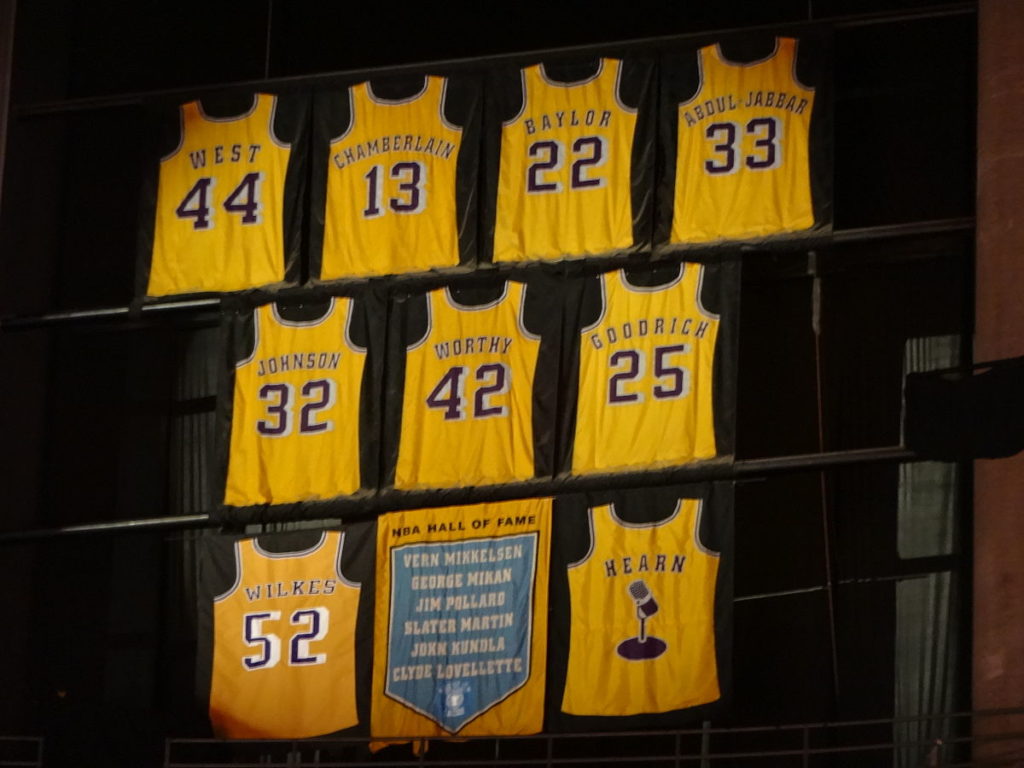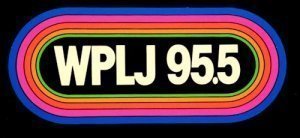
It was like the radio industry woke up last week. After decades of heritage call letters of iconic radio stations disappearing or being “parked,” the radio historians came out of the woodwork last week to lament the looming end of New York radio legend, WPLJ.
Radio Ink’s Ed Ryan got the pot-stirring started, interviewing radio luminaries like Lee Abrams, John Sebastian, and others to answer the question about the fate of those iconic call letters after EMF – the company that will flip the station to its Christian music network – moves on with their own branding. Many suggested a rock revival for PLJ – finding an ambitious owner in the NY/New Jersey area who wants to give those call letters another life.
Oddly enough, Walt Sabo (now better known as syndicated talk personality, Walter Sterling) and I had the same idea:
Walt: “The best use of the calls is to retire them, like a great ball player’s number.”
Fred: “Maybe it’s time to retire call letters like sports franchises do with jerseys. It would be a shame for those calls to end up on (an) AM (station) in Poughkeepsie.”
We refer to him as “Radio’s Best Friend,” but it’s time to call Art Vuolo a historian, archivist, or both. He passionately took the time to talk about what should happen to iconic call letters during this era-ending moments:
“Will some station in the Garden State grab those WPLJ letters on June 1, or will somebody in New York with brains and a true caring for their heritage, do something great with the name? At the risk of sounding like a 1966 Beach Boy’s song “God Only Knows.”
The Smithsonian would never allow this to happen to historic artifacts, and neither should the radio industry. Like all those great sets of calls, WPLJ comes with a  story – in fact, many stories. I was fortunate enough to start my radio career in the ’70s with ABC. At that time, radio companies were only allowed to own seven FMs and seven AMs, so every station mattered. And WPLJ and WABC in NYC were ABC’s flagship radio stations.
story – in fact, many stories. I was fortunate enough to start my radio career in the ’70s with ABC. At that time, radio companies were only allowed to own seven FMs and seven AMs, so every station mattered. And WPLJ and WABC in NYC were ABC’s flagship radio stations.
For its first many years, PLJ was a rock station – and an incredibly successful one. Talk to anyone who grew up in the New York/New Jersey area during the time, and they’ll tell you that PLJ was a seminal station (along with another set of lost calls, WNEW-FM). Pat St. John, Jimmy Fink, Carol Miller, Tony Pigg, Zacherle, and of course, Jim Kerr and Shelli Sonstein (still anchoring Q104.3 mornings) were all major players in PLJ’s all-star lineup.
Like all those original ABC-FM rock stations, there was a story behind the choice of those call letters. Legend has it that group head Allen Shaw “borrowed” them from a Frank Zappa & the Mothers of Invention song – “W-P-L-J,” – which stood for White Port Lemon Juice. If those calls get “parked” or buried as someone’s HD-2 or at that AM in Poughkeepsie, what becomes of the history of the station, its legal identifier, and what it all meant to the radio industry – and millions and millions of fans?

As you all know, I am not an attorney or even an F.C.C. regulations expert, so I am not aware of the machinations necessary to make it possible to retire call letters like we do sports jerseys and players’ numbers. But I do know that buildings earn landmark status through a process with the National Register. Why not call letters – like KMET, WBCN – and so many others that I’m expecting to hear about in comments and on social media that have been abandoned on the radio highway?
Ironically, radio honors the people who made the business great – especially those who entertained and informed America over the airwaves. The National Radio Hall of Fame in Chicago has hundreds of designated honorees.
But call letters?
As the industry finds itself in yet another period of buying, selling, swapping, and consolidating, the designation of historic call letters may be an idea whose time has come.
Best, bittersweet wishes to everyone who ever worked at WPLJ during its many incarnations. A lot of truly talented people roamed those halls and made some amazing radio in those studios.
And if you’ve never tried White Port and Lemon Juice, this may be a good day to start:
- What To Do If Your Radio Station Goes Through A Midlife Crisis - April 25, 2025
- A 2020 Lesson?It Could All Be Gone In A Flash - April 24, 2025
- How AI Can Give Radio Personalities More…PERSONALITY - April 23, 2025




Raise it to the rafters!
Good idea!
Yep ! Many already being at least sullied or blurred by what they’re attached to. It’s our history and we should preserve…
Thanks, Tom, from someone who truly appreciates the great radio stations that influenced, entertained, and informed millions of us.
When first reading this I thought it was a good idea but wondered how many “non-radio” people might really care. But the more I think about it, the more I do think these historic stations very much have significant meaning to countless millions that make them worth honoring and preserving their memory.
If you have six minutes, the link below is a gem of a piece about San Diego’s historic KCBQ–the station that certainly ignited the radio-bug in me so many decades ago, leading to a very rewarding career doing the only thing I ever truly wanted to do. KCBQ–to my knowledge–is the only station with a granite monument where it once stood, listing the names of all the legendary personalities who entertained and informed millions of San Diegans through the decades. (How big was the station for me? As I like to tell people, “KCBQ is where I was able to meet the Beatles, where Three Dog Night brought Joy to my World, and where the Jackson 5 taught me my ABC’s.)
The linked video is a montage of three TV news stories about the event. I can only imagine how many readers of this blog might watch this and think of the stations that were instrumental in in their own careers, and would like to do the same–if only at least by preserving those classic calls.
Some things are worth remembering. Pass the WPLJ
https://www.youtube.com/watch?v=-ItdsI_1O_M
My friend, Jay O’Connor raised the objection that outside of New York and New Jersey, who cares about WPLJ? On the other side, pro athletes and other performers on the world stage are known to people everywhere (think Tiger Woods or LeBron James). But as you point out here, Dave, impact is measured in different ways. People around the U.S. may not have heard of Steve Dahl, but if you’ve been living in Chicago for the past 40+ years, there’s no doubt about his impact. Same with Tom Barnard. Or J.P. McCarthy and Dick Purtan. Thanks for the note and sharing the video and the thought process.
There’s no shortage of available calls. Retiring KMET, WPLJ, KLOS and WBCN (to list a few) will not create a crisis at the FCC. This will take some diplomacy: How willing is Beasley to give up the ‘BCN calls on their Charlotte sports station? How willing is the FCC to go along with this? Who decides which calls are retired? (I suspect the answers are Somewhat; Maybe if it’s politically positive for the Chairman; Art Vuolo, Fred Jacobs and Scott Shannon.)
Let’s get this done!
I like where you’re going with this – a Call Letter Tribunal. Appreciate it, Craig.
The call letters are not owned by a company, they are controlled by the FCC. I’m on the board of Brown Broadcasting Service. When we sold 95.5 in Providence, we retained wbru.com and the WBRU trademark to use for our digital media offerings, so we didn’t think it would be attractive for another commercial station to use them, however, we didn’t want them to go to someone else would have liked the letters for their own reasons. When WUMD (UMass Dartmouth) sold its license, the calls were picked up by the University of Michigan Dearborn. So we asked Brown Student Radio to take the call letters for their licensed, but then unbuilt LPFM, so that they wouldn’t be available to go elsewhere. Their old calls, WPVD, were picked up by another Providence station. Oddly no one in Providence had used them before.
Peter, you are correct, of course, that it’s an FCC issue. Thanks for shedding light on just how intricate these decisions can be.
Rather than the AM station in Poughkeepsie, it’s worse when the new owners damage the legacy themselves. Its like the old story of the GM who crosses the street to the competition, calls a staff meeting at his new station and says “It’s strange to be in this building, I’ve spent years trying to destroy this station”, and one of the air personalities in the back of the room shouts out “Now’s your chance!”
Simon, the comment’s appreciated. Thanks for weighing in.